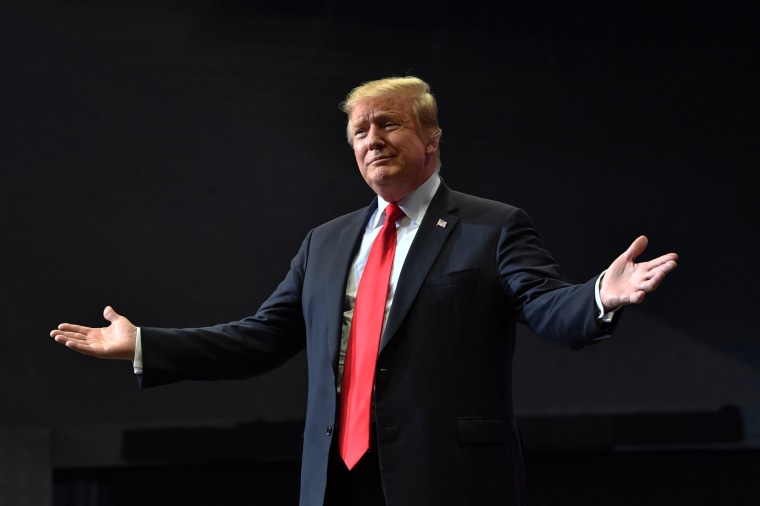It's been about two years since The Atlantic's Adam Serwer wrote, "Donald Trump can't stop telling on himself." It remains an important point: many of the most damaging moments of the Republican's presidency have come when Trump publicly disclosed his own misdeeds.
This came to mind this week, when the public started to learn some of the contents of Bob Woodward's new book, including the revelations that Trump deliberately misled his own country about the severity of the coronavirus threat. The fact that he acknowledged this on the record and on tape made it all the more extraordinary.
But pressed to defend his deceptions about a life-and-death issue yesterday, the president seemed to incorporate the circumstances into his defense at a press briefing yesterday:
"I knew that the tapes were there. These were a series of phone calls that we had -- mostly phone calls.... I thought it would be interesting to talk to him for a period of, you know, calls. So we did that. I don't know if it's good or bad."
In other words, Trump seemed to be saying, in effect, "How bad could the comments have been? I knew I was being recorded and I wouldn't have said something that made me appear awful while on tape."
At first blush, that might seem vaguely persuasive -- or at least it might, if Trump hadn't spent his entire presidency "telling on himself." Confessions of wrongdoing has become a weird staple of his term in office.
Circling back to our earlier coverage, the first hint came less than four months into his presidency, when Trump seemed to admit to NBC News' Lester Holt that he fired former FBI Director James Comey in order to derail a federal investigation -- making it seem as if the president was eagerly trying to obstruct justice.
About a year later, Trump published a tweet making the case the Justice Department shouldn't pursue corruption charges that interfere with the Republican Party's midterm election plans.
That came around the same time the president made incriminating comments on national television about his role in an illegal hush-money payment to a porn star with whom he allegedly had an extra-marital affair.
A few months later, Trump used Twitter to lobby a government agency to do a special favor for a coal plant owned by one of his campaign contributors.
In each of these instances, if an investigative journalist had uncovered a secret document exposing one of the president's schemes, it would've been front-page news. But in many instances, Trump has done reporters' jobs for them, acknowledging misdeeds with surprising regularity.
Nick Akerman, a former Watergate prosecutor, said last year, "What he's been saying in public is the kind of thing I used to prosecute people for doing in private."
In context, Akerman was alluding to Trump hatching an illegal extortion scheme with Ukraine, which ultimately led to his impeachment. We know key elements of the Republican's wrongdoing because his own White House released an official call summary featuring the president telling his counterpart in Kyiv, "I would like you to do us a favor, though."
Not long after the scandal broke, Trump used his position -- again, on camera and on the record -- to encourage two foreign governments to go after one of his domestic political rivals.
Around the time of his presidential impeachment trial, Trump thought it'd also be a good idea to have a series of lengthy chats with Bob Woodward, who recorded the president "telling on himself" a bit more.
The Republican's defense yesterday -- he "knew that the tapes were there" -- is predicated on the idea that Trump is competent enough to know what not to say about his own misconduct.
His own record disproves the point.

